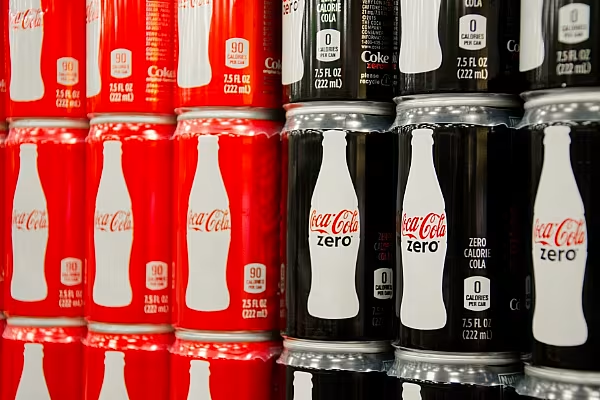Coca-Cola’s rocky path as a Keurig investor has now taken an unexpected turn: the coffee company is becoming one of its biggest competitors.
Keurig Green Mountain’s move to take control of Dr Pepper Snapple Group will make it the third-largest soft-drink seller in North America - directly in contention with market leader Coke and No. 2 PepsiCo. Those companies may find it best to respond in kind, with deals of their own, said Bloomberg Intelligence analyst Kenneth Shea.
“The market is rewarding growth, whether it’s organic or through acquisitions,” he said. In food and beverage, the companies “that are doing the best are the ones that are making bold acquisitions. They’re doing something about the sluggish environment.”
Deal Pressure
Deal pressure has mounted because beverage companies are struggling to cope with shifting consumer preferences on their own.
Drinkers are moving away from traditional colas and other sugary sodas in favour of healthier options. In response, Coca-Cola, PepsiCo and Dr Pepper have acquired smaller brands that fit with what’s en vogue - from cold-brew coffee to high-pressure processed juices to kombuchas.
For Coke in particular, Monday’s deal may cause the company to reflect on past investments and future possibilities.
The Atlanta-based soda giant owned 17% of Keurig before it was taken private by JAB in 2016. Coca-Cola’s partial ownership spurred talk that it might buy the brand outright. Instead, Coke made about $25.5 million on the JAB acquisition.
Coke had been working with Keurig on a cold version of the coffee brewer’s single-serve machine, a bid to make it easier for consumers to make soft drinks at home. But the machine wasn’t well received and was taken out of commission shortly after launch. Keurig Chief Executive Officer Bob Gamgort says the Keurig Kold project was based on the same insights behind the Dr Pepper deal, but they weren’t applied as effectively.
“Management desire to participate in the broader beverage category and their strategic recognition that coffee is a critical part of a broader beverage category was very sound,” he said. “I don’t think that that execution that you saw was the optimal execution. This is.”
Monster Stake
Coca-Cola has an 18% ownership stake in another maker of drinkable stimulants: Monster Beverage Corp. The question now is whether it will bite the bullet and buy that business outright, Shea said.
“You’re going to see investors saying to Coke, ‘What are you going to do with Monster?’ Eighteen percent equity interest in Monster is nice, but you’re not fully participating in one of the fastest-growing, highest profit-margin opportunities,” he said.
At PepsiCo, meanwhile, the latest takeover may rekindle the drive to shake up the company. Investors had lobbied for years to split up the beverage and food divisions.
“No one’s given them a hard time about splitting the company up in years because the stock has performed well,” Shea said about PepsiCo. “But with this new benchmark in town, any kind of stumbles on the food side, you’re going to start hearing grumbles.”
News by Bloomberg, edited by ESM. Click subscribe to sign up to ESM: The European Supermarket Magazine.














